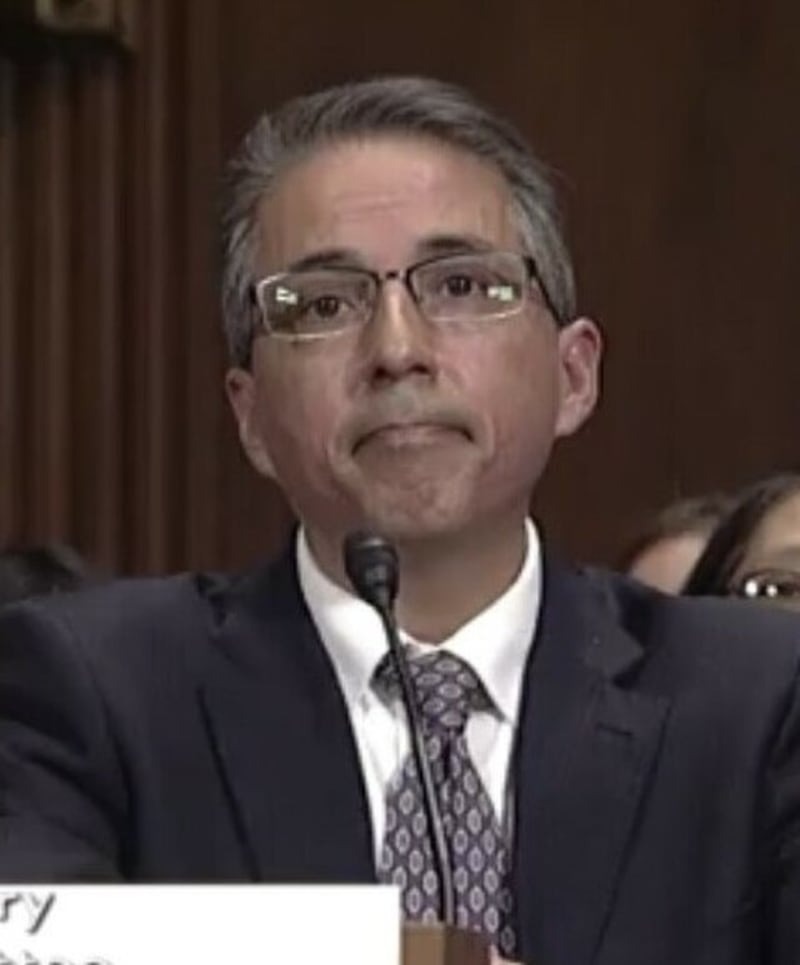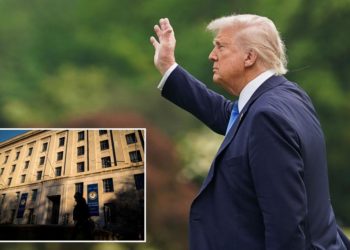A federal judge appointed by President Donald Trump put a hitch in his immigration crackdown on Thursday.
U.S. District Judge Fernando Rodriguez Jr. ruled that the Trump administration unlawfully invoked the Alien Enemies Act—an 18th-century wartime law—to deport alleged members of the Venezuelan gang Tren de Aragua without due process last month.
“The President cannot summarily declare that a foreign nation or government has threatened or perpetrated an invasion or predatory incursion of the United States, followed by the identification of the alien enemies subject to detention or removal,” Rodriguez wrote in his order.
In sum, Rodriguez said Trump cannot claim the United States is at war to invoke the wartime law without a concrete declaration of war by Congress. In invoking the Alien Enemies Act—which was last invoked during World War II to place Japanese-Americans in internment camps—to deport alleged gang members without due process in March, Trump claimed the country was at war with drug cartels and foreign gangs, giving him the power to expedite deportations. Rodriguez disagreed.
The Texas judge’s ruling on Thursday blocks the administration from deporting anyone else under the law; however, the Trump administration flouted court orders in another case regarding the administration’s deportations to an El Salvador prison.
Trump used the centuries-old act as legal justification to fly over 200 migrants—including Kilmar Abrego Garcia, whom the administration conceded was deported by accident—to an infamous prison in El Salvador on accusations that they were members of violent gangs like MS-13 or Tren de Aragua. Those sent did not undergo typical deportation proceedings, which would have allowed each migrant to defend themselves in front of a judge.
A flurry of challenges to the deportations have emerged since March 15, when the Trump administration hastily carried out the removals before the courts could intervene. Ultimately, U.S. District Judge James Boasberg issued an order to halt the deportations, but the ruling was issued while the deportation flights were already underway, and the Trump administration opted not to turn the planes around.
Many of those imprisoned in El Salvador have attested they have no ties to a gang, including a Venezuelan soccer player targeted over his Real Madrid tattoo and a gay stylist. El Salvador also refused to accept some of those flown in by the U.S., including non-Salvadoran Central Americans and two women. Even El Salvador’s Trump mini-me president, Nayib Bukele, “expressed concerns” about who was being sent.
While Rodriguez is not the first federal judge to halt deportations under the Alien Enemies Act, he is the first to conclude that Trump exceeded his presidential authority by invoking the Alien Enemies Act in the first place. Other judges concluded the Trump administration did not give defendants enough time to mount a challenge to the allegations against them in court—not that Trump was wrong to invoke the wartime act itself.

Rodriguez, 58, wrote that Trump does “not possess the lawful authority under the AEA, and based on the Proclamation, to detain Venezuelan aliens, transfer them within the United States, or remove them from the country.”
The matter reached Rodriguez’s courtroom after Venezuelan migrants sued the Trump administration in hopes it would prevent them from being sent to El Salvador’s megaprison. The men, who are being held in South Texas, can still be deported by traditional means—but not by using an expedited process under the Alien Enemies Act.
The Trump administration is expected to appeal the ruling from Rodriguez, whom Trump appointed in 2018. Rodriguez, a Yale Law graduate from the Rio Grande Valley, was the first Latino judge to be given a lifetime appointment by a president.
The post Trump’s Own Judge Blocks Alien Enemies Act Deportations appeared first on The Daily Beast.




